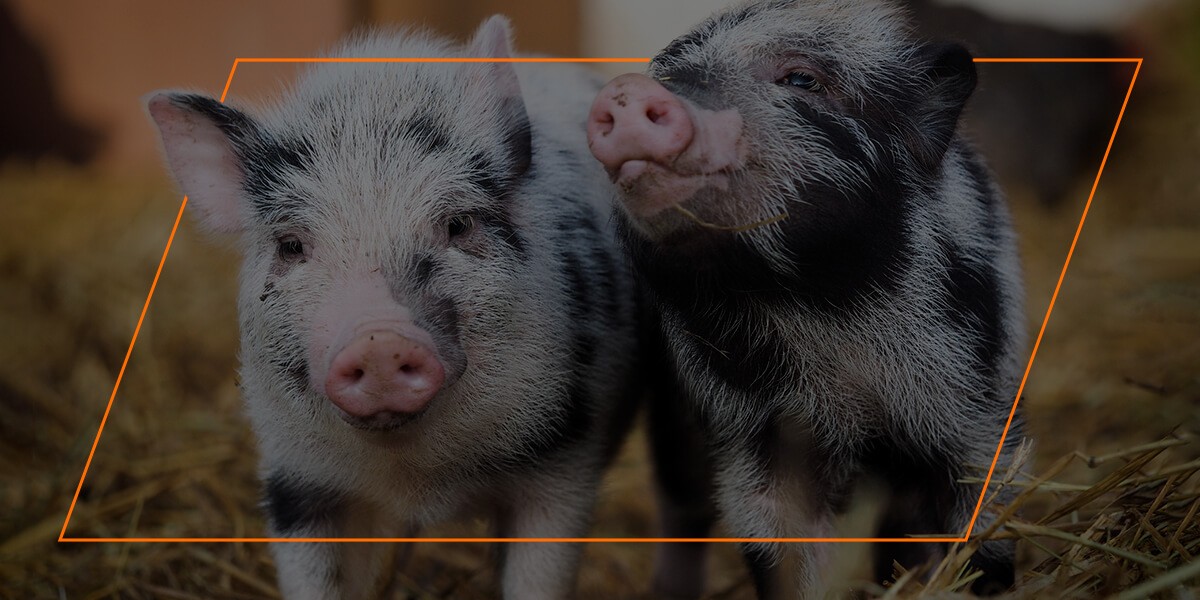Pigs are often thought of as animals that can eat just about anything, a notion reinforced by the saying “eats like a pig.” However, the reality is that a pig’s diet requires careful consideration. Incorrect feeding can lead to serious health issues and even be fatal. Understanding What Foods Can Pigs Not Eat is crucial for ensuring their health and well-being. This guide provides a comprehensive overview of foods that are harmful to pigs, helping you keep your swine happy and healthy.
Can Pigs Really Eat Anything?
Despite their reputation, pigs cannot simply eat anything. Their digestive systems, while efficient, are sensitive to certain substances. Just like humans, a pig’s diet significantly impacts its overall health. Pigs are natural foragers, using their snouts to explore their surroundings for food. While they are omnivores capable of digesting a wide range of foods, some items are toxic and must be avoided at all costs.
A Detailed List of Foods Pigs Should Not Eat
To protect your pigs from harm, it’s essential to know what foods to avoid. Here’s a detailed list of items that should never be included in a pig’s diet:
Onions: A Toxic Threat to Pigs
Even small amounts of onions are toxic to pigs. Cooking does not eliminate the harmful effects. Onions can cause vomiting, blue gums, difficulty breathing, and diarrhea, which are early signs of toxicity and can lead to anemia and other severe complications.
Raw Meat: A Source of Infection and Undesirable Behavior
While some pig owners may offer raw meat, it’s best to avoid it for several reasons. Raw meat can transmit trichinosis, a parasitic disease, to pigs. This worm can also be passed on to humans who consume undercooked pork from infected pigs. Symptoms of trichinosis include gastrointestinal distress, muscle pain, fever, and facial swelling. Furthermore, feeding raw meat can lead pigs to develop a taste for it, potentially causing them to seek out and consume other animals, which is highly undesirable.
Raw Eggs: Risk of Biotin Deficiency
Occasional raw eggs might not cause immediate harm, but feeding them regularly in large quantities can lead to a biotin deficiency. Raw eggs contain avidin, which interferes with biotin absorption. Cooking eggs eliminates avidin, making them a safer option for your pigs.
Certain Vegetables and Herbs: Photosensitization Risks
Celery, parsnips, and parsley contain furocoumarins, substances that can cause photosensitization in the skin. This condition makes pigs more susceptible to sunburn, posing a significant risk, especially for pigs with pink skin.
Cherry Pits: A Source of Cyanide Poisoning
While the flesh of cherries is safe for pigs, the pits, along with other parts of the cherry tree like the leaves, contain cyanide. Ingestion of cherry pits can lead to cyanide poisoning, which can be fatal.
Rotten, Rancid, or Moldy Food: A Recipe for Sickness
Despite their reputation, pigs are susceptible to illness from consuming rotten or moldy foods, just like humans. These foods harbor harmful pathogens. Pigs are particularly vulnerable to mycotoxin poisoning from moldy food.
Junk Food: Excessive Salt and Harmful Additives
Junk food often contains high levels of salt, which can lead to salt poisoning in pigs. Symptoms include dehydration, digestive issues, seizures, and blindness. Additionally, chocolate should never be given to pigs due to the presence of theobromine, a compound that can cause serious health problems and even be fatal. Darker chocolate is particularly dangerous.
Environmental Toxins: Hidden Dangers for Pigs
Besides food, pigs can encounter harmful substances in their environment. It’s crucial to be aware of plants that grow naturally in your area and to identify any that are potentially toxic. Some common environmental toxins include:
- Bracken
- Laburnum
- Hemlock
- Deadly nightshade
- Cocklebur
- Rhododendron
- Foxglove
- Ragwort
- Ivy
- Henbane
- Jimsonweed
What Can Pigs Eat? Safe and Nutritious Options
While there are many foods to avoid, pigs can still enjoy a varied and nutritious diet. Here are some safe options:
Organic, Non-Medicated, Non-GMO Pig Feed
Specially formulated pig feed is a cost-effective and efficient way to ensure your pigs receive all the necessary nutrients to support their health at every stage of life. It provides the right balance of nutrients, protein, and carbohydrates, making it an excellent foundation for a healthy diet.
Apples and Bananas: Healthy and Delicious Treats
Apples and bananas make excellent treats for pigs. They are sweet, nutritious, and generally loved by pigs. Apples are a good source of fiber, but be mindful of the seeds, which can be toxic in large amounts. It’s best to remove the seeds before feeding apples to your pigs. Bananas can be given with or without the peel, but peeling them reduces the risk of choking and offers little nutritional benefit.
Cooked Meat: A Natural Part of Their Omnivorous Diet
As omnivores, pigs naturally consume insects, meats, and vegetables. Ensure that meat is thoroughly cooked before feeding it to your pigs to eliminate the risk of harmful bacteria.
Cooked Eggs: A Protein Powerhouse
Cooked eggs are an excellent source of protein and can be a valuable addition to a pig’s diet. Hard-boiling eggs and feeding them with the shell on is a convenient and nutritious option.
Dairy Products: A Source of Protein and a Tasty Treat
Pigs enjoy dairy products, and they can be a safe and nutritious addition to their diet when given in moderation as part of a balanced meal plan. Dairy provides a good source of protein.
Ripe Tomatoes: Safe in Moderation
Pigs can eat ripe tomatoes, but caution is necessary. Tomato plants contain solanine, which is toxic in large quantities. Only feed your pigs ripe tomatoes, and avoid any green tomatoes or other parts of the plant, such as leaves and vines.
Ensuring the Best Nutrition for Your Pigs
A pig’s diet has a direct impact on their mood, health, and energy levels. By understanding what foods can pigs not eat and providing a balanced and nutritious diet, you can ensure they live a happy and healthy life.
